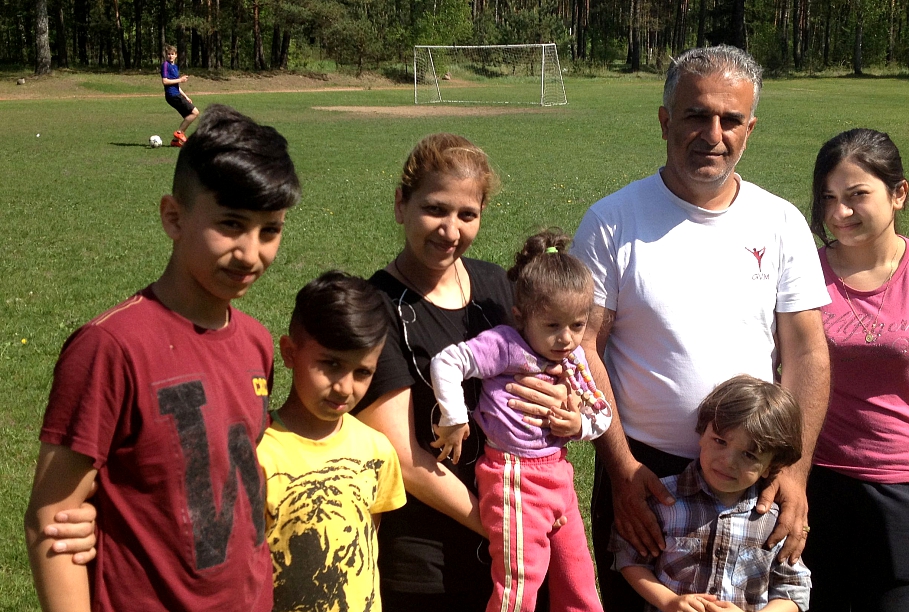In 2016 Latvia started admitting refugees under the EU relocation scheme, with more than 150 people moved to Latvia this year and almost as many arriving to Latvia through other routes.
Benefits running out soon
He has returned to Latvia after leaving in September for Germany, as many refugees did.
"At first my wife and children left, then I went to Germany too. I thought, maybe I'd find a job there. However they don't provide jobs in Germany too.
The Germans said that a Latvia-issued refugee passport allows working only in Latvia, not Germany. They said you can travel freely across the EU with this passport but not work.
That's why I returned. It's cheaper to live here, but soon it'll be a full year [since I've been recognized as a refugee] and the refugee benefit will not apply to me anymore. Then we can live on the street," he said.
He said that last week he had inquired for work in several fast food companies. Even though they have vacancies, Tarik doesn't have the necessary Latvian language knowledge.
"If it's acceptable to this state that people sleep on the street, we'll be doing just that. Let's see what they do to me. I think that it's better for a person to die once not every day," he said.
He thinks that the remaining refugee families currently in Germany will face similar problems and Germany.
"Germany is very large. You can't meet one another. It's difficult.
More than 60 people that have been recognized as refugees or given alternative status have left as they cannot make it here [in Latvia]. In Germany, if you work on the 'black market', you can at least earn for a living. Now we want to live in Latvia [..], he said.
Tarik doesn't want to return to his native Iraq as he thinks that it would pose a serious threat to the safety of him and his family.
Tarik previously worked as an interpreter in Latvia and helped other refugees state their cases at Latvia's migration office.
Shortly after his return, the I want to Help Refugees group raised money for the security deposit for his rental apartment, the payment of which poses a problem for many refugees who receive a €139 monthly allowance.
The Welfare Ministry has set up a work group to tackle the matter.
Latvia has committed to taking in 531 asylum seekers in two years under the EU relocation scheme.
So far the country has admitted 154 people of which 63 so far have been legally recognized as refugees or in need of protection.





























